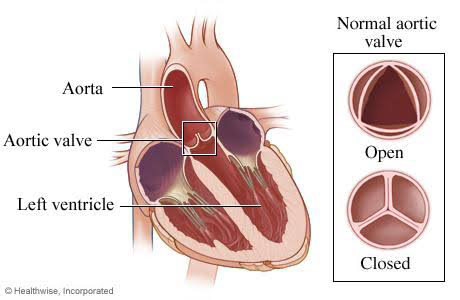⭐⭐⭐ EFFECT OF EXERCISE ON MUSCLES ⭐⭐⭐
⭐⭐ EFFECT OF EXERCISE ON ⭐⭐ MUSCLES
1) Exercise causes muscle hypertrophy.
Hypertrophy means increase in the size of muscle and not the number of muscle cells.
2) Due to exercise and strenuous activities - microtrauma i.e tiny damage occurs to the muscle fibres initially.Muscular contractions produce mechanical stress, which damages fibers directly, but repeated contractions under fatiguing conditions release intracellular calcium and inflammatory neutrophils, which degrade the fiber.
3) The body may respond to this microtrauma by causing hypertrophy of muscle fibre.
Thus , the muscle adapts and becomes more resistant to stress. There is enhanced synthesis of muscle proteins like actin and myosin.
4) How does this hypertrophy occur?
Following factors contribute to the hypertrophy of muscle fibre :-
(a) Hypertrophy of sarcoplasm (cytoplasm of muscle cells) due to increased glycogen storage in muscle fibres. After exercise, the rate of glycogen synthesis is increased to replete glycogen
stores, and blood glucose is the substrate.
(b) myofibrillar hypertrophy i.e increase in size of myofibril. Actin and myosin increase in number.
5) Exercise also affects neural firing pattern of muscles. More muscle cells are stimulated simultaneously i.e synchronised activation of cells.
Whereas in untrained muscle, neural firing occurs in asynchronous manner.
6) Training of muscles by exercise also decreases inhibitory neural feedback of CNS to the muscle. This keeps the muscles overworking.
7) Thus , exercise increases efficiency of muscles due to above events.
8) Hormones causing muscle growth are Testosterone, Growth hormone , Insulin growth factor.
Following mechanisms operate :-
(I) Inhibition of breakdown of muscle proteins
(II) They bind to receptors on the surface of muscle cells and stimulates protein synthesis to build the muscle after trauma.
(III) Activation of satellite cells (stem cell) that help in muscle development.
9) Constant exercise helps the body to release hormones like testosterone , growth hormone which further enhance muscle growth.
10) Lactic acid which accumulates in muscle as an intermediate link between anaerobic and aerobic metabolism is also responsible for increasing muscle mass. It induces muscle hypertrophy and also activates muscle satellite cells. It also increases growth hormone and testosterone production.
Lactate also stimulates mitochondrial biogenesis after exercise. The mitochondria are little factories inside the muscle cells where aerobic metabolism occurs — that is, where oxygen is used to break down fats and glucose to yield energy. An increase in the concentration of mitochondria inside muscle cells improve performance of muscles.
11) This information thus suggests that exercise increases muscle performance and working capacity and makes the muscle strong. We know that muscle undergoes disuse atrophy when not used for a long time.
Hence, exercise is very important for maintaining good health.





Good explanation 👌
ReplyDeleteThank you so much 😊😊
DeleteImpressive..would consider it while working out
ReplyDeleteThank you so much 😊😊
DeleteWell done
ReplyDeleteThank you so much 😊😊
DeleteNice 👌👌
ReplyDeleteThank you so much 😊😊
DeleteSmall and sweet👌
ReplyDeleteThank you so much 😊😊
DeleteNice 👌👌👌 Keep it up Dr. Nikita
ReplyDeleteNice to see u write small articles too👌
ReplyDeleteThank you so much 😊😊
DeleteThank you so much 😊😊
ReplyDeleteAb exercise karne me aur maja ayega ma'am.. thanks
ReplyDeleteThank you so much for reading 😊😊
Delete👌👌
ReplyDeleteThank you so much 😊😊
DeleteThank you so much 😊😊
ReplyDeleteNice
ReplyDeleteThank you so much 😊😊
DeleteVery good
ReplyDeleteThank you so much 😊😊
ReplyDeleteThank you so much 😊😊
ReplyDeleteWell written
ReplyDeleteThank you so much 😊😊
DeleteMuscle power👍
ReplyDeleteThank you so much 😊😊
DeleteThank you so much 😊😊
ReplyDeleteThank you so much 😊😊
ReplyDeleteU should publish in a newspaper 👌
ReplyDeleteThank you so much for your appreciation 😊😊 please keep reading
DeleteThank you so much 😊😊
ReplyDeleteVery nice writing
ReplyDeleteखुप छान बेटी👍
ReplyDeleteThank you so much Madam 😊😊
Deleteतुला भेटायला नक्की आवडेल😊
ReplyDeleteMe too madam😊 thanks for your appreciation and support ☺️
DeleteThank you so much madam 😊😊
ReplyDeleteThank you so much 😊😊
ReplyDeleteVery nice
ReplyDelete